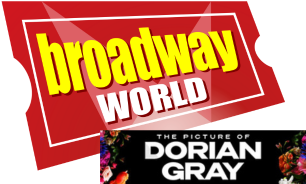BWW Reviews: THE HEIDI CHRONICLES Celebrates the 'Highly Informed Spectator'
Textbooks can, or at least should, educate on the important events and pioneering personalities that brought the Feminist Movement to where it is today, but just as important is an understanding of what these landmarks meant in the everyday lives of ordinary women who may not have been at the forefront, but whose heroism was being among the first testing out new freedoms and equalities in the real world.
The title character of Wendy Wasserstein's 1989 Tony and Pulitzer winner, The Heidi Chronicles, is certainly an accomplished woman, though the playwright cleverly gave her a name widely associated with a cute and naïve little girl out of literature. When the play begins, in 1989, we see her confidently and humorously lecturing on an assortment of underappreciated women artists. By the second act she's describing her profession as an art historian as that of a "highly informed spectator," a term that might also be used to describe her association with the struggle for gender equality as we flashback to the mid-60s and chronicle her achievements and decisions that have brought her, and women like her, to where they are now in a quest to fulfill their potential.
Wasserstein wrote better plays than The Heidi Chronicles, but she never wrote a more important one. In 1989 women were truly excited that something like The Heidi Chronicles existed, let alone existed on Broadway. To see director Pam MacKinnon's jaunty production in 2015 is to feel the excitement of a sharp and persuasive history lesson; not just of how the Feminist Movement got to where it was in 1989, but in the language and characterizations that communicated the playwright's message in a time when "having it all" was a newly attainable concept and not just a neat slogan for a t-shirt.
From a high school dance to a Eugene McCarthy rally to Consciousness Raising Rap Group and beyond, Elisabeth Moss' low-key Heidi serves as a balanced observer, in contrast to the broader characters surrounding her. Comfortable and charming in her scripted lectures, Moss' empathetic performance gives the impression that Heidi is sizing up every situation when improvising through real life. Her Heidi may not be a natural leader, but watching her grow into someone who can summon up her courage to step beyond her comfort zones gives you something to cheer for.
and Bryce Pinkham (Photo: Joan Marcus)
She's at her greatest ease when with Peter, a gay man (and leading pediatrician) with whom she shares abundant chemistry. Bryce Pinkham's performance is one of realistic flamboyance and cleverness, offering Heidi the kind of unconditional love she appreciates, but would rather receive from Scoop, the smug magazine publisher with whom Heidi shares a rocky relationship.
It's debatable whether Scoop's condescending attitude toward Heidi is grounded in sexism or just his feelings of superiority over everyone. While Jason Biggs nicely conveys Scoop's annoyances as an educated, privileged liberal there is little evidence of qualities that would attract Heidi. Of course, that could be Wasserstein's point. A more obvious point is that Scoop has no trouble balancing a career and family life while women like Heidi fight to make the two paths meet.
There's fine supporting work done by Ali Ahn as Heidi's best female friend and Tracee Chimo as an assortment of characters, including an oblivious news show interviewer and a tightly wound lesbian activist.
MacKinnon separates scenes with audio and video collages emphasizing the advances and headlines being made by women in politics and pop culture; the sights and sounds that are thrown at Heidi every day as she and millions of other highly informed spectators work to make their roars be heard.
Click here to follow Michael Dale on Twitter.
Reader Reviews


